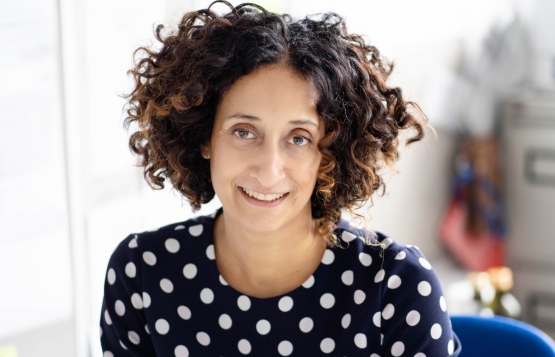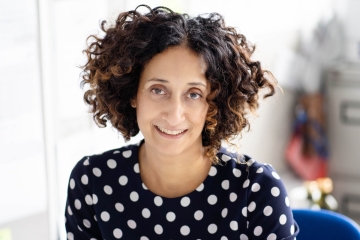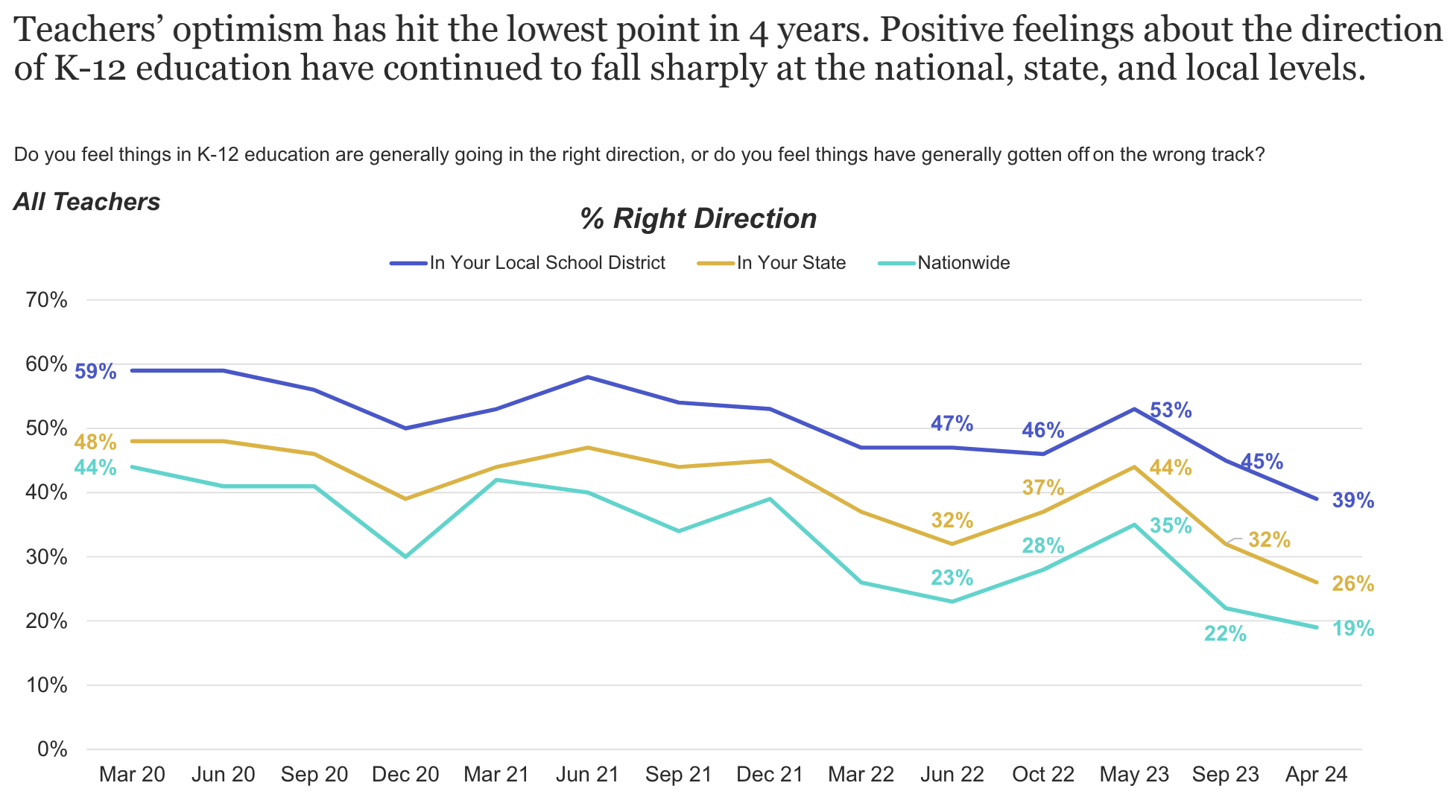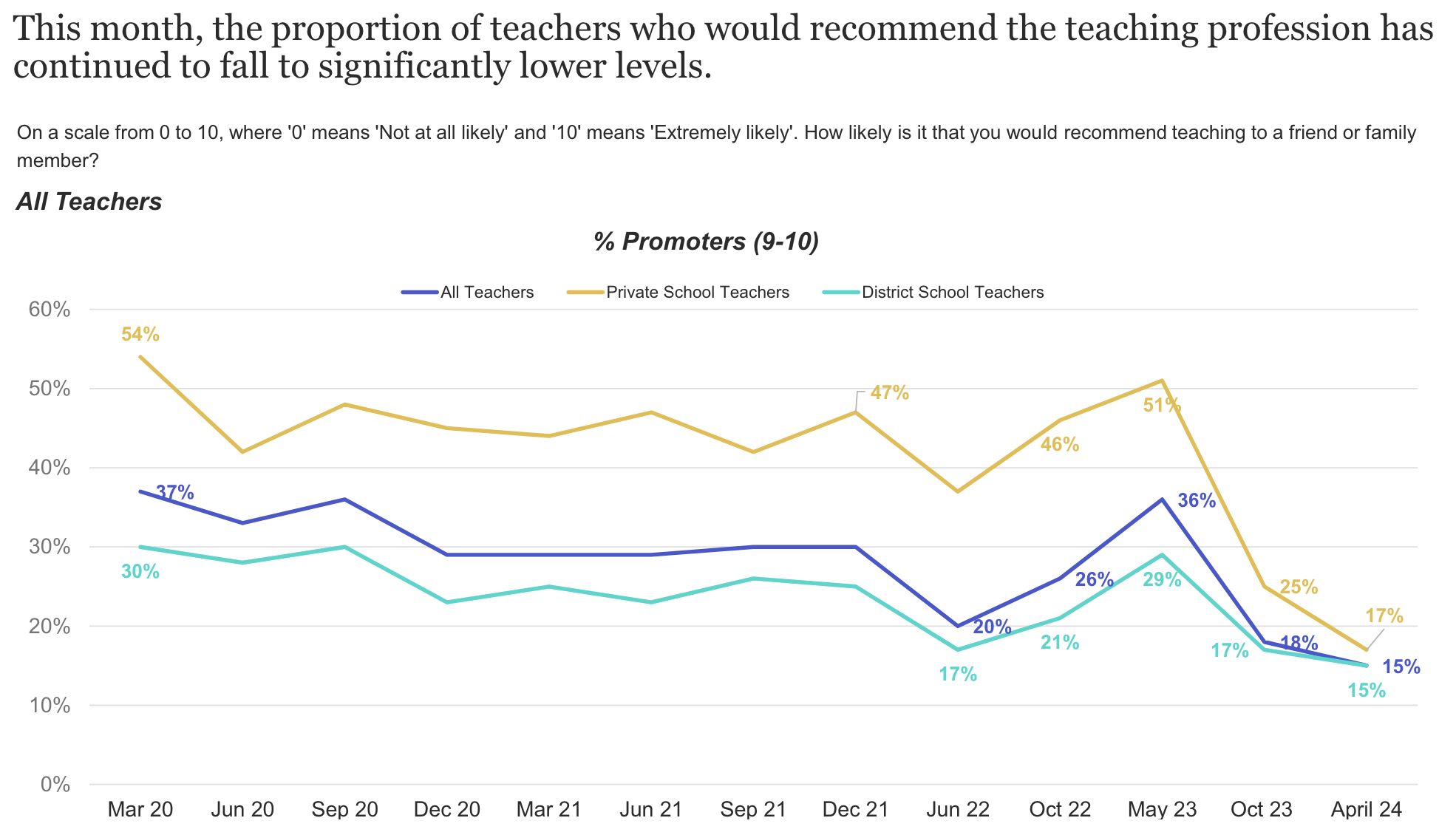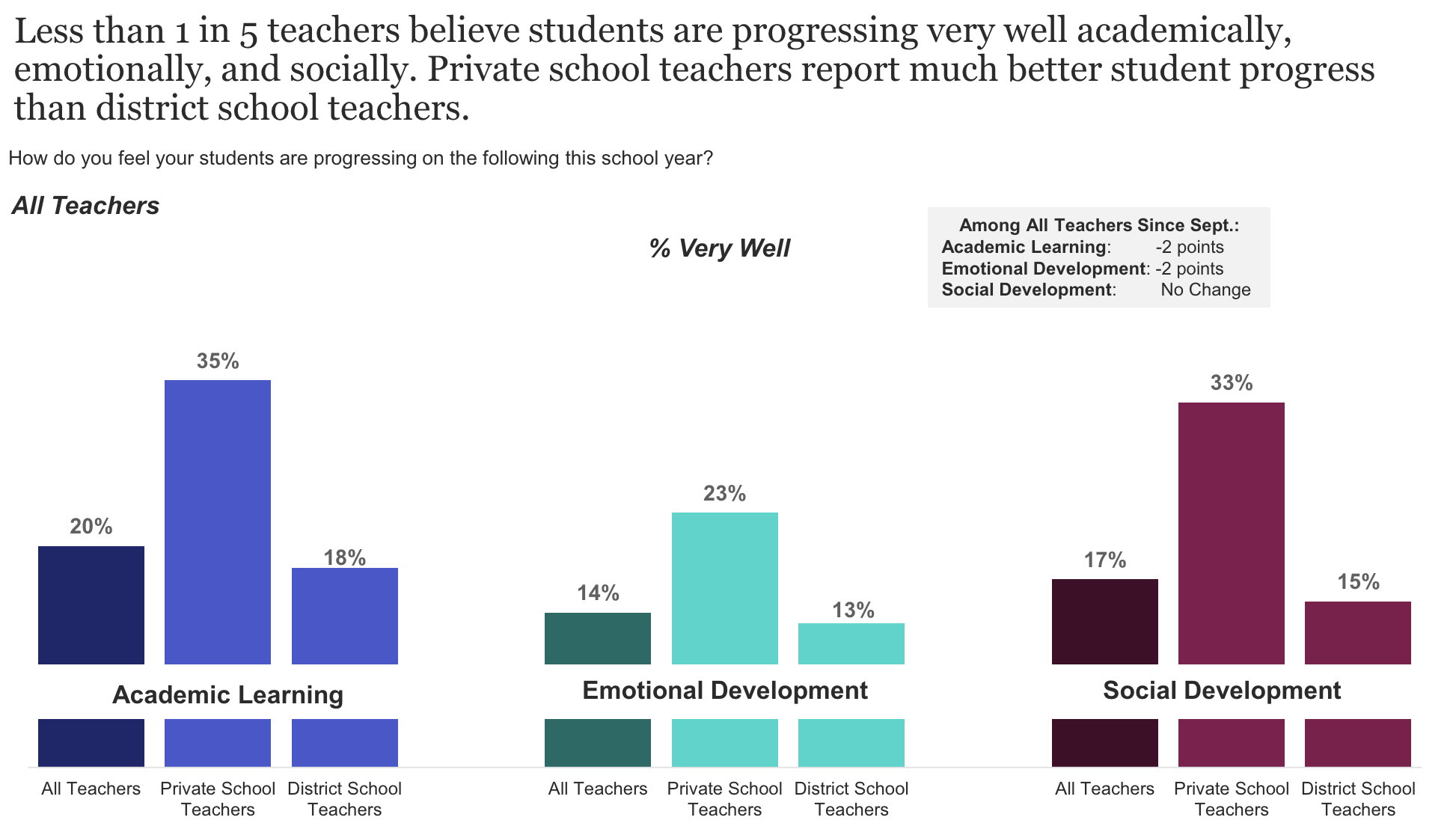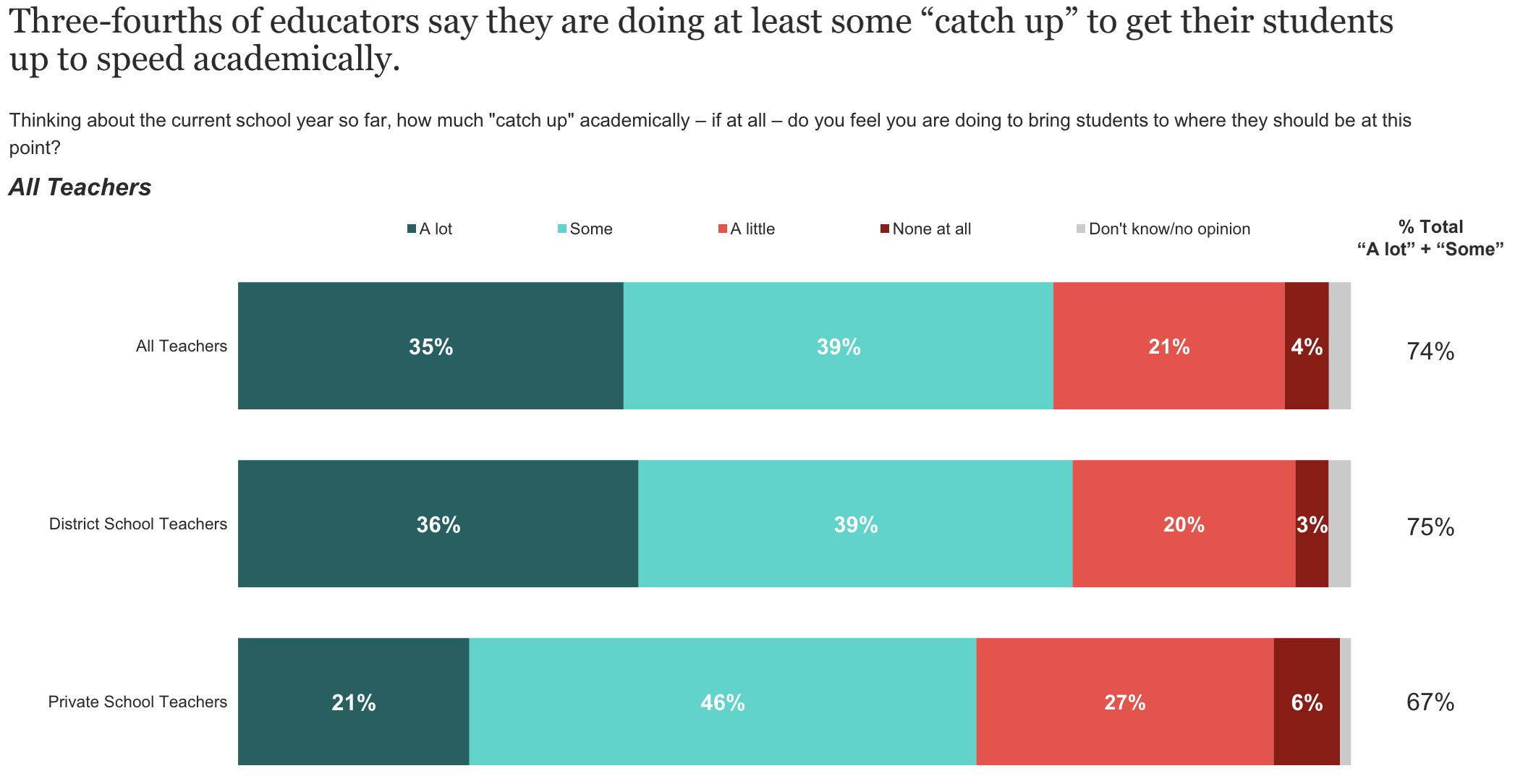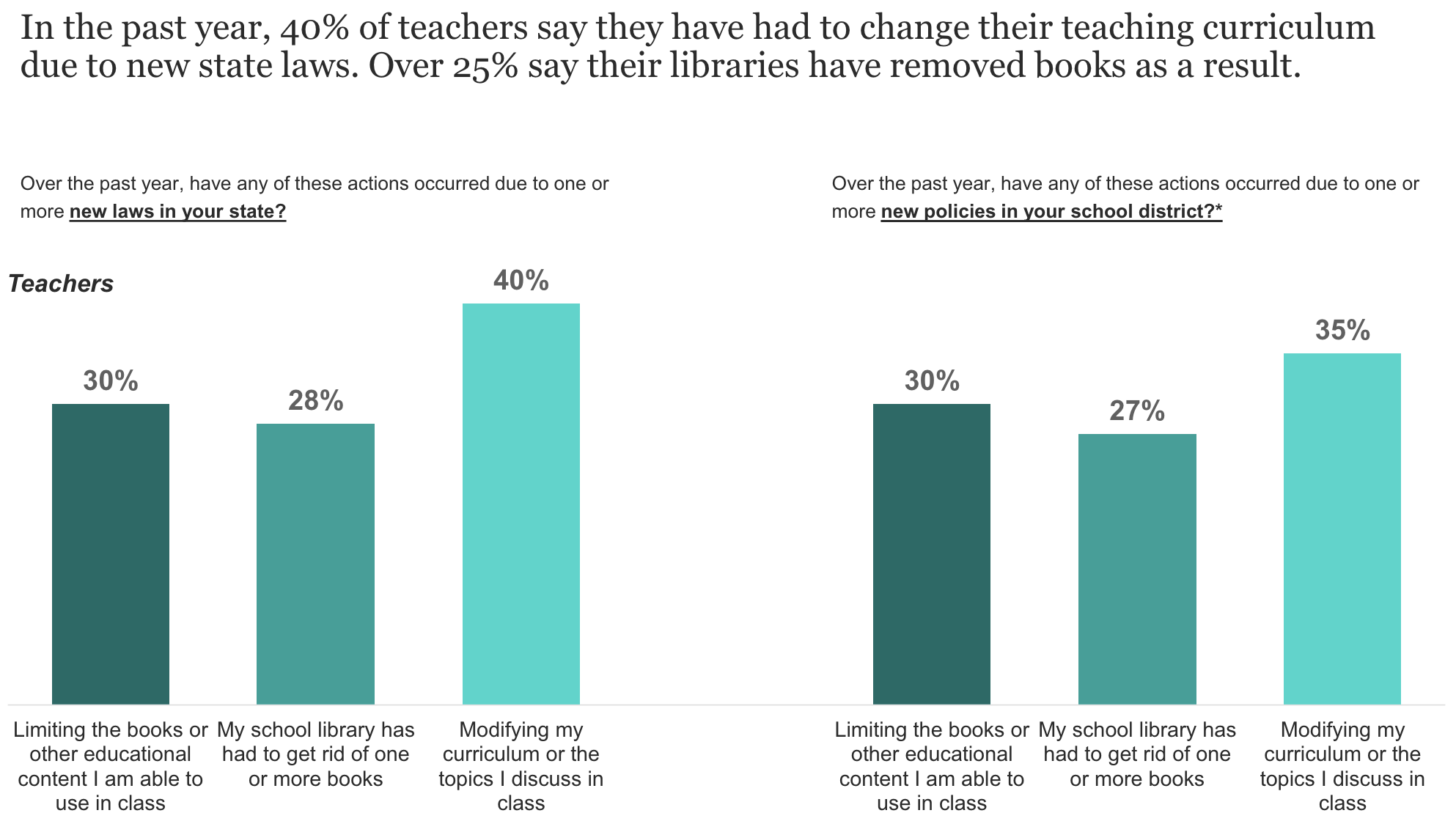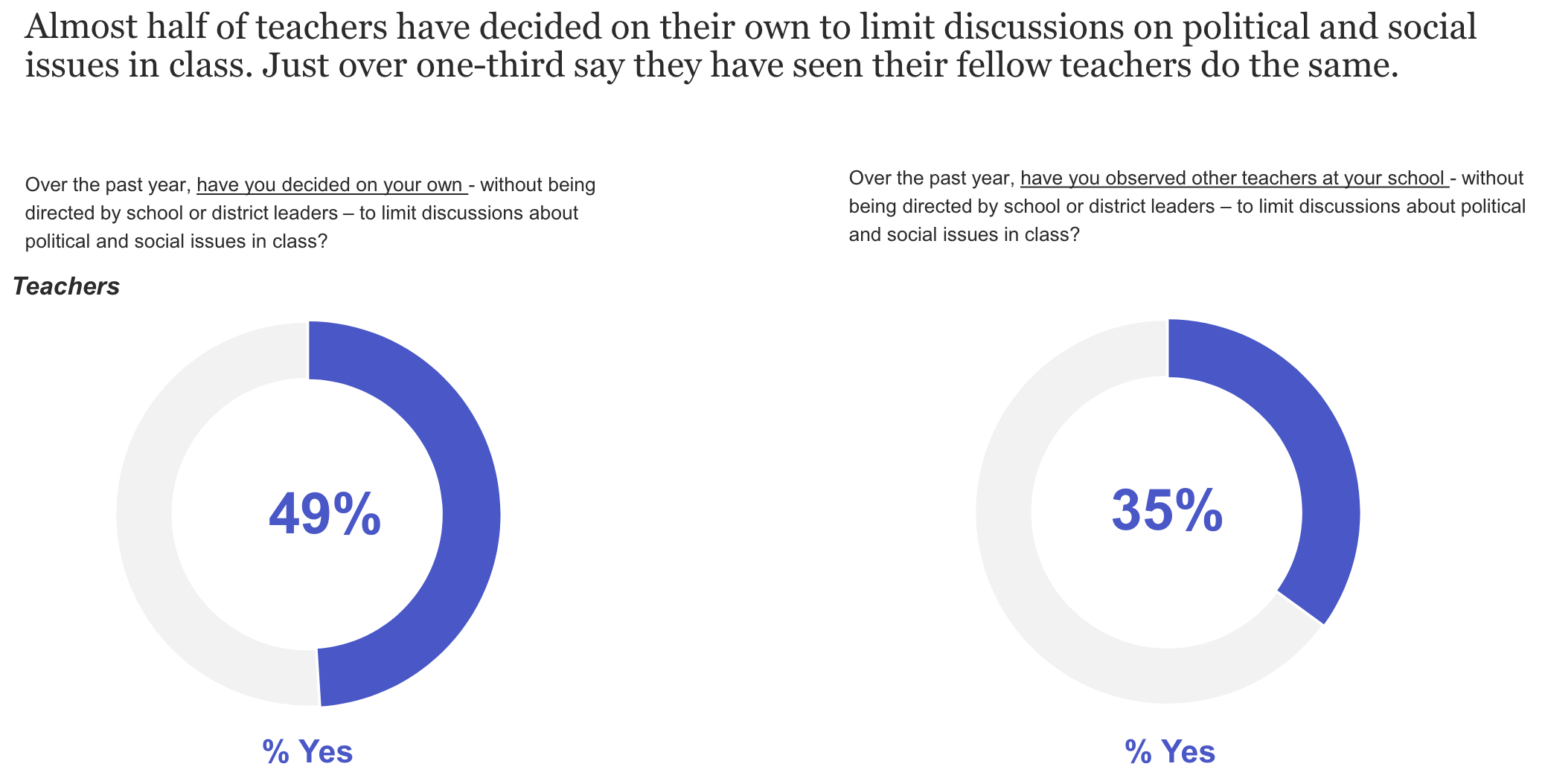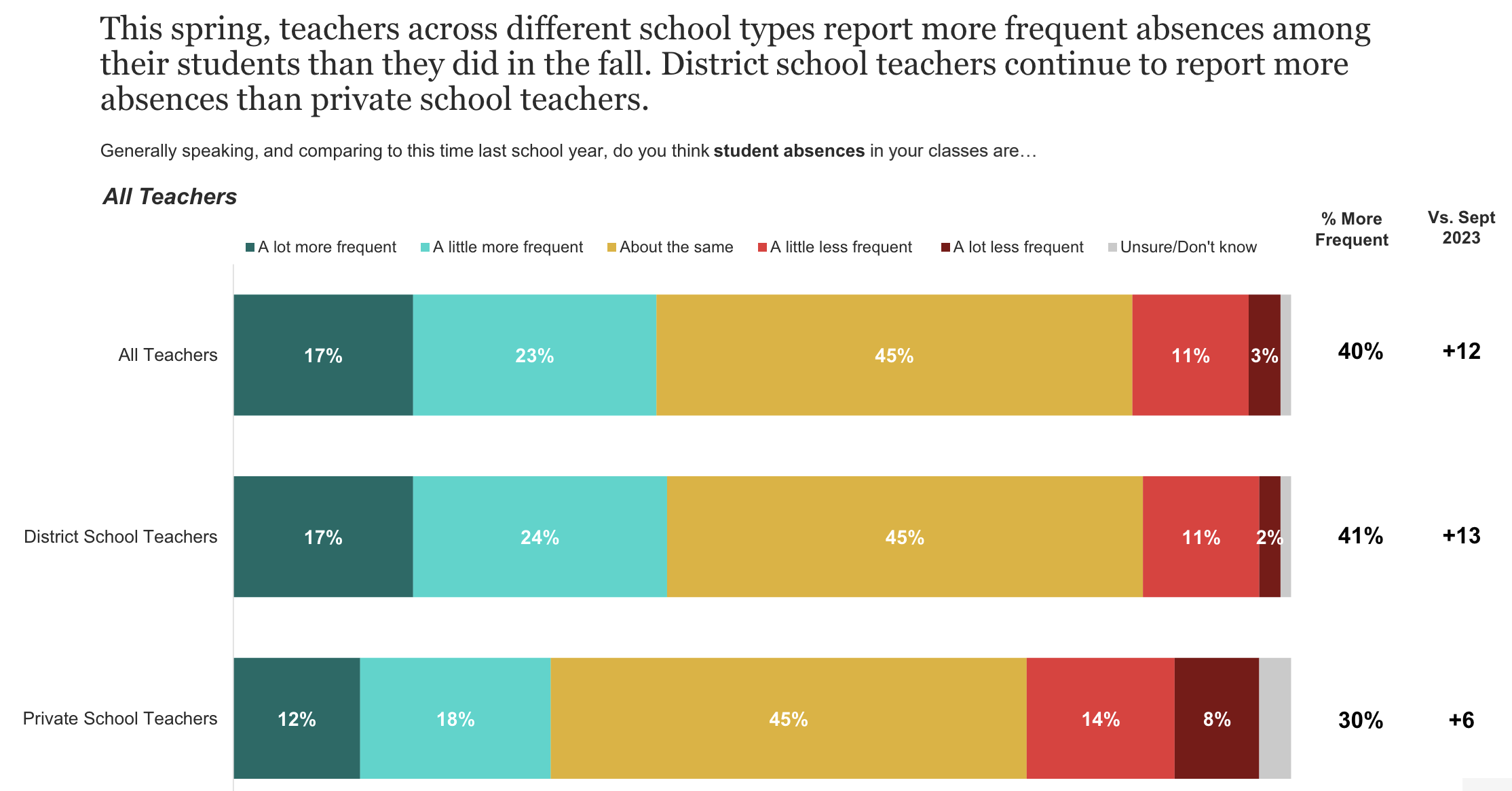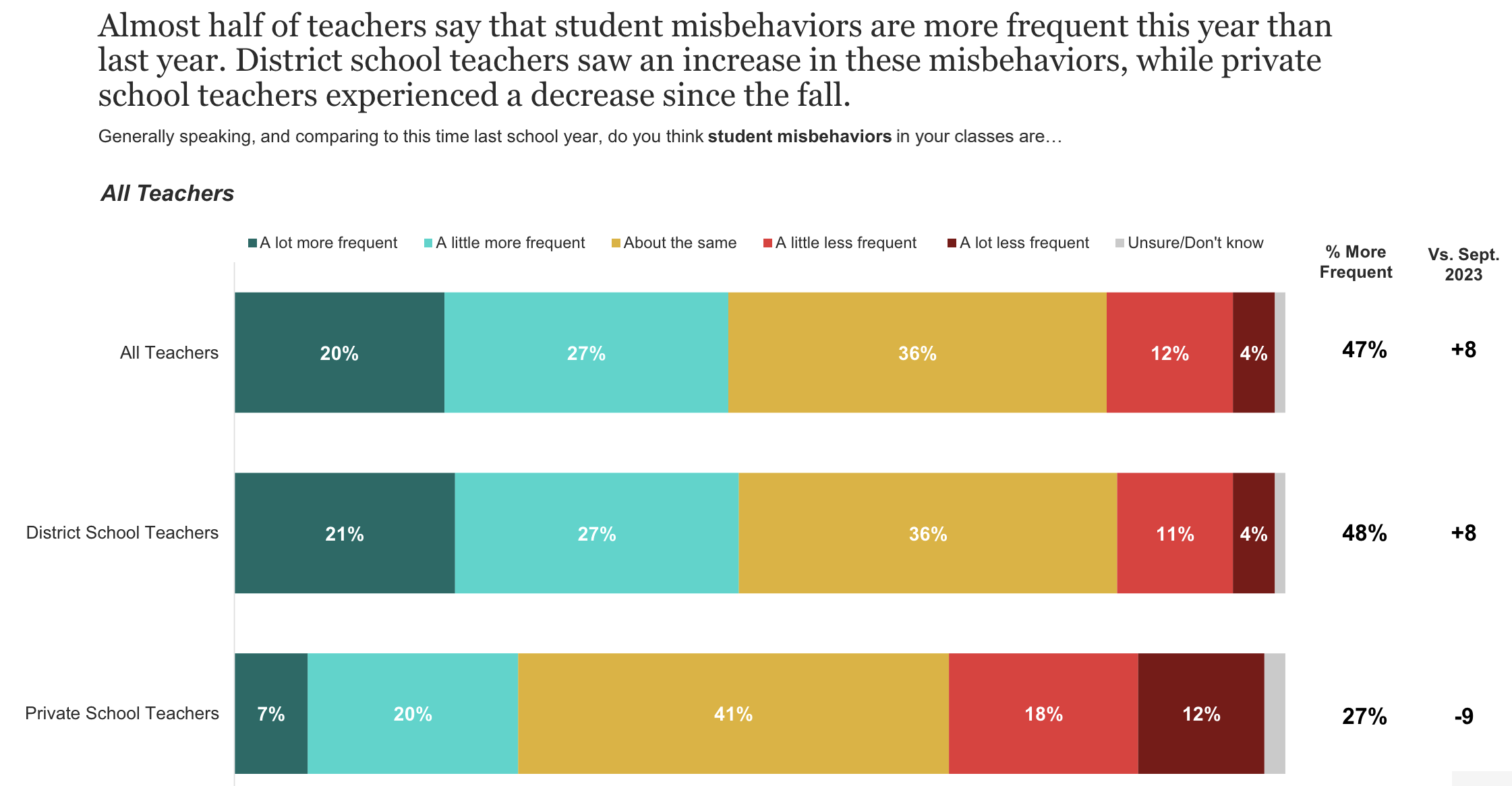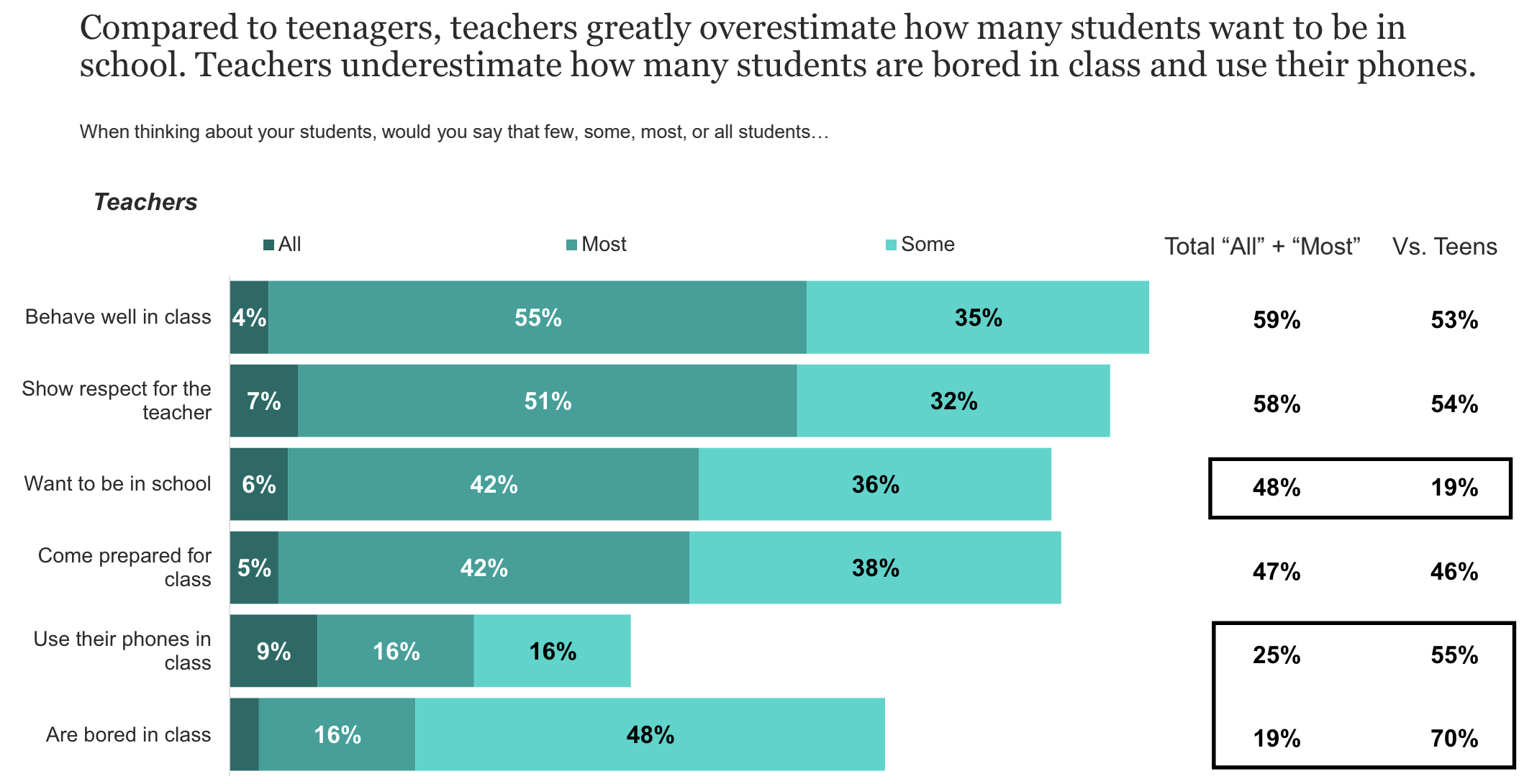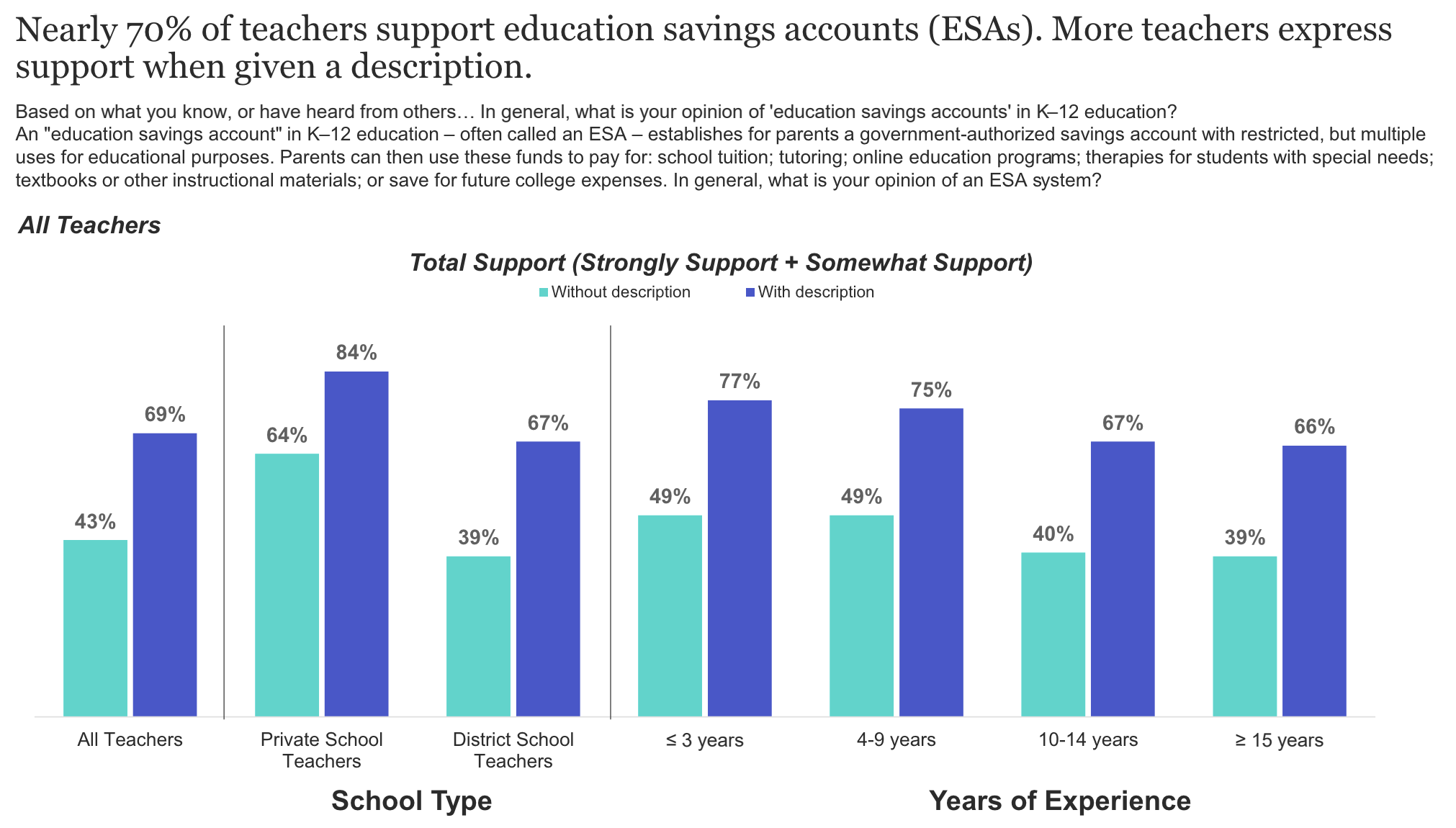On this week’s Education Gadfly Show podcast, Daniel Buck, Fordham’s policy and editorial associate, joins Mike and David to discuss whether and how elementary schools should teach reading comprehension. Then, on the Research Minute, Amber examines a new study investigating the short- and long-term impacts of school closures in the 1990s.
Recommended content:
Feedback Welcome: Have ideas for improving our podcast? Send them to Daniel Buck at [email protected].
Michael Petrilli:
Welcome to the Education Gadfly Show. I'm your host Mike Petrilli of the Thomas B. Fordham Institute. Today, Daniel Buck, Fordham's policy and editorial associate, joins us to discuss whether and how elementary schools should teach reading comprehension. Then on the research minute, Amber reports on a new study investigating the short and long-term impacts of school closures due to low enrollment or poor performance. All this on the Education Gadfly Show.
Hello. This is your host, Mike Petrilli of the Thomas B. Fordham Institute here at the Education Gadfly Show and online at fordhaminstitute.org. And now please welcome our special guest for this week, our very own Daniel Buck. Dan, welcome to the show.
Daniel Buck:
Thanks for having me on, Mike.
Michael Petrilli:
Yeah, Dan is Fordham's policy and editorial associate and the producer of the Education Gadfly Show, making the magic happen, usually offset, but now behind the microphone. Very exciting. Also joining us as always, my co-host, David Griffith. Hey Mike,
David Griffith:
Hey Mike, always a pleasure?
Michael Petrilli:
Well, we are here to talk about reading comprehension. Let's do that on ed reform update. Alright, Dan, when we have a Fordham person on as our guest, that only means one thing. Shameless self-promotion, and in fact, that's what's happening here. You have a new policy brief out part of our Think Again series, this one titled, should Elementary Schools Teach Reading Comprehension? Question Mark. So let's start right there. Sounds like kind of a no brainer. I mean people would say, of course elementary schools should teach reading comprehension, right?
Daniel Buck:
We at Fordham like overcomplicating all seemingly simple issues. And in this case, I mean, yes, obviously elementary schools should teach reading comprehension, but it gets a little more complex when we ask, well, what does that actually mean? We're going to be teaching reading comprehension skills as kind of the popular approach. Maybe we actually shouldn't be. There was the national reading panel 24 years ago now, I think it was, that did a lot of great work talking about phonics and fluency, but there's a big section on reading comprehension skills. So doing things like finding the main idea, making inferences, asking questions, monitoring your own comprehension. And so these had a firm grounding in the research, but what often goes on asked when we're talking about reading comprehension skills is, well, how much do we actually need to teach them? How long do lessons need to be before students get all that they can from them? And research has found that kids get these reading comprehension skills down after six to 10 lessons. It's kind of like in math classes, check your work. There's not really a lot of training or practice that goes into it. It's just kind of a habit that students instill. And what's way more important, and I'm sure we'll get into it later in this podcast and conversation, is background knowledge, factual knowledge, knowledge about the world, social studies, science history, art, music, all that kind of stuff.
Michael Petrilli:
And our listeners now are going to say, oh, okay, you're talking about the Edie Hirsch argument, which we are, right? And you said the national reading panel was what, 24 years ago? Edie Hirsch's argument probably goes back something like 34 years
Daniel Buck:
Ago, 1987 English teacher, not a math teacher. So I can't do that in my head quickly.
Michael Petrilli:
Boom. So even further. So look, Don Hirsch has been making this case for a long time. Maybe at first it was theoretical and over the years there's more and more evidence piling up. We hear people like Dan Willingham providing the evidence and others that yes, I mean if you want kids to actually be able to comprehend something, sure they need to know how to make inferences and find the main idea, but they need to be able to make sense of what the heck they're reading. And that's not just about sounding words out with the science of reading stuff and phonics, that's actually recognizing the words that they're reading because they know something about the content knowledge. You can sound out tyrannosaurus wreckx though, that's kind of a hard one. But do the bells go off in your head or not? When you sound that off to say, oh, that's a dinosaur and I know that because I've learned about the dinosaurs and so on and so forth.
So Dan, the problem then is one of emphasis, and you write in this brief a lot about the workshop model as well. Can you tell us, I mean, take us inside a typical elementary school classroom because it's probably some people who would assume, well, I mean surely this is what elementary schools do. I mean first they teach kids how to sound out the words and the early grades they're doing math. But when you're talking about English language arts, they then must be reading great books. They're probably teaching them about history, they're teaching about the world, we're learning about the presidents, we're learning about science. But you're saying that's not actually what's happening in a lot of classrooms.
Daniel Buck:
I think most of our listeners and readers, a lot of them have sort of drunk the knowledge. Kool-Aid have bought the Edie Hirsch argument about the importance of knowledge. And if they haven't bought into that argument, they at least know about it. So in the brief, I tried to then extend out, well, what does this fundamental misconception actually mean for classroom practice and the skills-based approach? If you think that reading comprehension depends largely on generalized reading skills, well then it makes sense that you're just going to model a skill and then you're going to send kids off to go practice it by themselves and independent reading in leveled books. So I try to broaden out in the second half of the brief and discuss what's called the workshop more generally, which is, like I said, a teacher might model a skill for no more than five to 10 minutes, demonstrate how to notice details in their book imagery, things like that.
And then the kids go off, they pick a book, often leveled. So it's supposed to be just not too hard, not too easy, just at the right level. And then they practice that skill for 30 minutes when they're reading that day, they're supposed to be thinking about identifying imagery and details and so many aspects of that workshop model leveled reading, picking your own books, extended reading time. Intuitively they make sense if you think that reading comprehension is a skill, but they just don't work and the research into them is functionally, and if you have a knowledge centric understanding of reading comprehension, well then they just don't make sense,
Michael Petrilli:
Right? Because you're not actually building the knowledge base that's going to allow kids to read more and more difficult stuff. I mean, the level thing is a whole other craziness. I mean for sure if there's a time in the day when the kids are supposed to be reading for fun and you say, okay, you can yes, go ahead and read Dog Man a great series. If I ever said one myself, then fine, but you haven't gone to the Dog Man series yet, David?
David Griffith:
I have not heard of Dog Man yet. Sorry,
Michael Petrilli:
It's actually a spinoff from. Captain Underpants, I think.
David Griffith:
Oh, okay. That one I've heard of. Yeah.
Michael Petrilli:
Oh, you can look forward to this. I mean, look, you want to spend a little bit of time just getting some confidence, but that kid's not going to get any better if all they're doing is reading dogman. They need to be pushed to read some stuff that's challenging for them with some help. And most importantly, if they're going to be able to read increasingly challenging stuff, including academic stuff, they're going to need to have content knowledge. And that means picking the same book. And this is where conservatives and liberals, I mean this is not an argument for drudgery. I mean pick great books of literature, children's literature from over the years, but read it together. Also though at some point in the day, whether it's within the English language block or other parts of the elementary school day, make sure you're also reading about history and civics and geography and all the rest and science again in a way that's about building that content knowledge. So a little bit of the skill building fine, but much greater emphasis on the content knowledge. David, why this been so hard? This seems like common sense to a lot of us, and yet it's man, it's like civil war out there.
David Griffith:
Yeah, I think there are a couple of reasons. First of all, I'm the wrong person to ask, but two things come to mind. One is that I think many of us actually we're not, and by us, I mean let's say the policy of lead did not get this in school. When I have this model described to me, I have an out of buy experience. Same with when it comes to the phonics, like I got phonics. Most people who can read got phonics. That's why they can read. That's how they got to the place that they are. And so I think for some people it just maybe takes a little convincing or a little bit of explanation to understand, no, actually this nonsense is kind of widespread and maybe you didn't get it at your school, which where all the teachers knew what they were doing, but actually there's some really weak construction out there and it's sort of emanating from these sources of power that we might assume would have their act together and would know better.
I'm talking about the ED schools of course, among other places at curriculum developers. So I think that's one thing, right? It's just that I think there is a certain level of education that has to go on with people who know better once they understand the problem. And then I also think that there's a certain amount of just professional embarrassment that's associated with this. It is embarrassing to be told this doesn't make any sense. And what you're doing is complete nonsense and it's inane to teach a kid to look for details and then send them off with a book and expect them to look for, I mean, that's inane, right? It's manifestly inane when you think about it, but nobody, people don't like to be criticized on that front. And so it takes a certain amount of humility and willingness and openness to change to sort of turn the direction of the ship. And I think maybe in some ways it's easier done when it's you who's figured it out. And so anyway, I think there's some challenge just to change the institutional culture at some of these places.
Michael Petrilli:
Let me ask you, Dan, or you too, David, but do you think it's sometimes that people get confused between what makes sense for say, high school kids versus elementary school kids? I mean, so forever now for decades, we've heard people say, well, why do you need to have this knowledge? You can just Google. It used to be, you can just look it up in the encyclopedia right now. We are going to have ai, right? So knowledge is expanding at such a rapid pace. Why do we need this knowledge? Well, I could understand if I hear a high school student say, why do I need to know about the mitochondria? Or pick whatever random topic you're learning and you say, well, maybe you do, maybe you don't. We just think everybody in America should have to learn these things at one point in time. Very different though than saying for elementary schools, why do you need to learn history and science and literature and the arts in the early grades here?
It's not only for the sake of learning those things that it's important to know those things, and it's fun to learn those things, but it will actually help you read that you're not going to be a good reader if you don't have at least some knowledge base about all those different fields. And so maybe a more progressive approach where at some point you're like, alright, does everybody need to know every little aspect of these different domains in high school? Maybe not, right? But you need to have a pretty good general knowledge when you're 8, 9, 10, 11 if you're going to be a good reader. I mean, does that make sense? Is that what we've got to maybe better explain is it's about a stage where kids need this information.
Daniel Buck:
I mean, I think there's a lot of information that most of us take for granted. In any newspaper column. You're going to come across hundreds and hundreds of words and references thrown out that don't get explained. Berlin Wall 1776, the content of our character. We say these things and any writer then assumes that their reader kind of knows what these are. You don't need to know the ins and outs of the Berlin Wall to necessarily understand the point that whatever New York Times op-ed writer is trying to make. But if we want our writing to be sensible, we can't have the Berlin wall which existed in this era in between these countries. For these, our writing and our communication would become incomprehensible if we had to include that many subordinate clauses and that many of positive phrases explaining every single word in every single reference that we made. And there's just a whole lot of knowledge that we need to impart to the next generation to even be able to communicate and read clearly, let alone think critically, write beautifully, build a civilization, and all of these kinds of grander ideas beyond basic reading and writing.
Michael Petrilli:
Okay, we will need to leave it there. Very well said Again, our own Dan Buck, you should check out his great think again brief again. It is called Should Elementary Schools Teach reading comprehension. Dan, I always say people should come back soon, but hey, you're the producer. You can actually make that happen.
Daniel Buck:
I do. People hate listening to themselves on the recording, but now editing this, I get to listen to myself for 15 minutes, three or four times. It should really be a Greek tragedy.
Michael Petrilli:
Thanks again, Dan. Buck. Now it's time for everyone's favorite Amber's Research Minute. Amber, welcome back to the show. Thanks, Mike. Special Greetings from Lovely store Connecticut.
Amber Northern:
Wow, I don't know where store is.
Michael Petrilli:
It's in Connecticut, right? I should look right now. I think it's Northeastern Connecticut is what I would say, I think. Okay.
Amber Northern:
All right.
Michael Petrilli:
It is. So basically east of Hartford, sort of between Hartford and Boston. Anyways, I flew into Hartford. How's that? No idea where you're right now. That
Amber Northern:
Didn't mean to trip you up on that, but
Michael Petrilli:
No, it's lovely. It is the home of the University of Connecticut Go Huskies, and it's looked really pretty. I am excited to get to be at another college campus, but man, it is spread out. I don't know how they do it. They must use those scooters these days is how the youngins must survive on these enormous campuses.
Amber Northern:
Hey, they exercise Mike. We want them exercising.
Michael Petrilli:
Yeah, that's true. Maybe Do you think they walk? I hope so. I'm going to try to find one of those scooters. I think I have to go all the way across town for this conference that I'm going to.
Amber Northern:
Okay. Good luck with that. It is a beautiful 80 degree day, Mike. I don't
Michael Petrilli:
Know. Yes, it is nice. It is nice. Alright, well what do you have for us today?
Amber Northern:
I have a new study out on the short and long-term impacts on students of school district closures. So not charters, we're just looking at district school closures and Texas, they're looking at closures in the 94 through 97 school years. So a while back, but they tracked the students from 1998 through 2015, sample restricted to schools observed again in these last, they had to have data for the last three years before and two years after the closure. So they're looking at five surrounding years. They identified 470 closures during that time span. They have student level data on absences, numbers of disciplinary action, standardized math and reading scores, high school graduation. Then they have post-secondary outcomes on Texas four year college attendance, whether you earned a bachelor's degree and employment industry and earnings data. So it's Texas big in terms of the data sources and variety of data.
They use two difference and differences models, both of which passed the test of parallel pret trends, which covers many pages. They're comparing the changes and outcomes among students affected by school closures. So those who are not, then we got to figure out, okay, how are we going to identify these control schools? So the control schools share similar observable characteristics on 12 NCES variables with the closed school at the time of closure. And then after they do that, then they match 'em within groups using a nearest neighbor matching method. And their nearest neighbor has to match the schools on their share of black, Hispanic free and reduced lunch and disadvantaged students. Then they exclude schools in the same district because of concerns about spillover effects. And then the short run analysis includes individual fixed effects and a full set of matched group by year fixed effects. And in the long run analysis utilizes variation across cohorts within school. So with the long run, they have to compare the cohorts who enrolled in the school at the same time of closure with the cohorts who graduated within the last three years relative to those at those match control schools. Hope you got all that
Michael Petrilli:
Right. So the cohorts, for example, these are people who graduated earlier and therefore weren't affected by the closure versus the kids that were affected got caught up in the closure.
Amber Northern:
That's right. Okay. Within the school. So they're still matching those kids. Alright. Finding short run, there is a small decline in standardized math and reading scores following the school closure that subsequently recovers to initial levels within three years. However, the story's a little different on the discipline front. There's a 0.2 day increase in the days of absences immediately after closure, the absences persist for four years post closure. And they also find closure results in a 0.3 day increase in the days of disciplinary action. So kids kind of getting in trouble here right after the closure. And that escalates keeps going up to 0.9 days after four years of the closure. So you've got the test scores rebounding, but the absences persisting four years after where you're still seeing them hanging in there in terms of that impact. Then they look to see how school quality might play a role in all this, and it gets even more complicated.
So they start looking at, okay, what's the difference in quality between a closed school and the nearest school? That's how they measure it. And they find that students displaced to worse performing schools experience a larger drop in test scores. Not surprising. While students displaced to better performing schools experience a larger increase in the days of disciplinary incidents, which is interesting, they dig deeper into school quality. They exclude the displaced students after the school closure and they find that the peer test scores decreased by about one eight standard deviation right after the closure. So the peers are going down. But then they also saw broadly that kids tended to move to schools historically served better performing peers. They're trying to figure out what's going on here with the peer patterns. They dig into it, they find that the kids who are moving in the schools, the move-in students have substantially lower test scores.
And the original students with suggests that the change in school quality in the year of closure is driven by these changes in student composition. Finally, then they look at the long run stuff and they find that the cohorts that experienced closure had an overall experienced overall negative effect. Almost all of those post-secondary education and labor market outcomes, they're negative, but they're small. For instance, experiencing school closure decreases the likelihood of graduating from high school by one percentage point enrolling a four year college by 1.2 percentage point and appears to lead to about $800 lower annual earnings by the age of 25 to 27. But these adverse effects were less pronounced for kids who were in the highest grade at the school because it looked like they were in the terminal grade and they would've moved anyway. So those kids had less impact. Anyway, that's a lot. But they closed with an important point, which is maybe we should be thinking about phasing out gradually instead of abruptly closing schools. They're just not sure whether that would help. We get that schools got to close sometimes, but maybe there's a better way to do it.
Michael Petrilli:
Well, that's not good. That's not good. And I guess there's different versions of bad and worse. The worst thing is to close the school and to send the kid to an even worse school than they were attending before. But I don't know mean. So all this matching stuff, I mean, does this get at, do we think, are we convinced it feels like at the end of the day somebody's making a decision about a school needing to close or not. And if it's because of enrollment, then there's some reason that school that looks similar but is under-enrolled, is under-enrolled. Or if it's because of performance. Again, same thing. I mean, I don't
Amber Northern:
Know. Well, and they actually did dig into the reasons for why the schools were closing and it was completely unsatisfactory because their main reason was 90% closed because of enrollment issues. And I'm like, well, yeah, but that mask a bunch of other stuff that's potentially leading to that enrollment loss. So yeah, it's not that helpful in terms of the reasoning.
Michael Petrilli:
David, what do you think? Are you convinced?
David Griffith:
Well, it's a little hard to be convinced in real time here, but I think it's always important to remember when you're talking about closure, the thing that I always keep in the back of my mind is that it's not just about the kids who are displaced, it's also about future cohorts. In my personal opinion, nobody really closes schools because they think it's an awesome thing for the kids who are going to be displaced. You do it because you feel like it has to happen. And what you really have in mind are the kids who haven't been enrolled in the schools yet, and as you're trying to prevent them from ever being enrolled in the schools. And so in that sense, I always feel like closure studies that focus on displaced students aren't really, I mean it's not that they're missing the point, it's an important question, but there are other important questions as well.
And I also feel like, I mean it is, I'm sure there are multiple things that contribute to any decision, but none of these studies really answer the question, which is really like, when should you close the school? Right? Because the answer can't be never, right? The answer can't be, well, this school could hold a thousand kids, but we're down to 50 and we don't want to close it. I mean, that's not the answer. So what we really need to know is that at what point should we pull the plug, right? At what point does it get so bad that it's time to bite the bullet? And I don't know. I would love to see a study that tried to assess sort of the break even point of closure. I don't know how else to put it, right? But the point beyond which it actually does sort of make sense in a larger sense. And what do you need a 50% enrollment decline, a 25% enrollment decline? My sense is it's somewhere in between those things. But that's just my opinion. So I'm not sure quite how to get at those things, but I think just talking about it as this general phenomenon doesn't really answer the question that we want to answer.
Amber Northern:
I think we've seen some phase out studies in Chicago. I was having a vague memory of covering a study that did some phase out before in Chicago, and it seemed like one of the things that they found just qualitatively was just demoralizing because your school's getting smaller and smaller and smaller every year and you are used to kind of being part of this big school and now you're looking around at a lot of empty seats. And so what is the impact of that on kids as they're left behind as the school is slowly phasing the closure?
Michael Petrilli:
Yep. Well, we got to figure these things out quick because we have a massive wave of school closures almost certainly coming thanks to our very sharp decline in student enrollment. So here we go again. Alright, that is all the time. We've got Ford this week. So until next week,
David Griffith:
I'm David Griffith.
Michael Petrilli:
And I'm Mike Petrolia of the Thomas B. Fordham Institute signing off.
